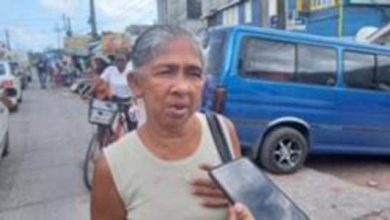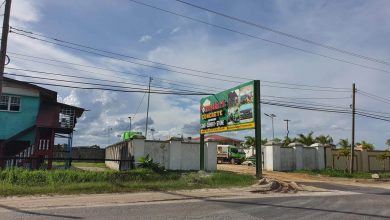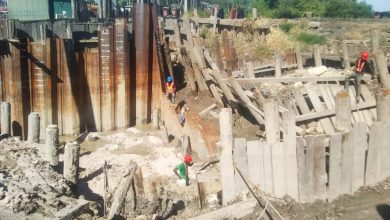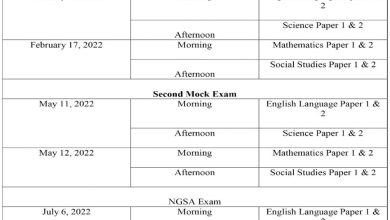News
Caribbean RoundUp

ANTIGUA
People who protested in a recent march against the Antiguan government’s plan to have frontline workers vaccinated against the COVID-19 virus are being urged to get themselves tested after several police officers who were present at the event have tested positive for the virus.
The Ministry of Health is calling on people who were in attendance at that event that they should seek testing as early as possible to verify their status because the indications are that there might have been a spread at that event.
A statement issued following the weekly Cabinet meeting noted that the government had been informed that “several police officers who were present at Market Square that Sunday afternoon on Aug. 8, controlling an unlawful gathering of marchers, have tested positive for COVID-19.”
It also said that those who took part in the gathering even as spectators are encouraged to have themselves tested for the virus.
Media reports have said that as many as 16 law enforcement officers have tested positive for COVID-19.
BARBADOS
The International Monetary Fund (IMF) says the Barbados economy “remains severely depressed” as a result of the ongoing global COVID-19 pandemic.
This was revealed after a delegation from the IMF ended a virtual visit to the island recently.
The delegation, headed by IMF Economist, Bert van Selm had conducted a staff visit by videoconferencing between Aug. 27 at the invitation of Barbados government led by Prime Minister Mia Mottley.
According to a statement issued, the IMF said while tourism was expected to recover gradually in the second half of 2021and the first half of 2022, risk to the outlook remain.
But the IMF official said that despite this very challenging environment, Barbados continues to make good progress in implementing its ambitious and comprehensive economic reform program, while expanding critical investments in social protection.
The head of the IMF delegation said that the tourism activity has picked up in recent months but remains at a fraction of normal level. He said economic growth for the second half of 2021 and the first half of 2022 is premised on a gradual recovery of tourism.
CARIBBEAN
Members of the Caribbean community have pledged financial donations to help Haiti in the aftermath of a powerful earthquake last month.
During a special session of the Bureau of the Heads of CARICOM, the member states said the funds will help to address the immediate needs of the country.
An agreement was also reached on the need for a sustained development effort over the long term to give Haiti a fresh start.
The meeting was called to discuss the political and humanitarian needs of the country.
Antigua and Barbuda Prime Minister, Gaston Browne chaired the meeting that included Belize Prime Minister, John Briceno, Trinidad and Tobago Foreign Affairs Minister, Dr. Amery Browne, Barbados Prime Minister, Mia Mottley, Jamaica Prime Minister, Andrew Holness, as well as the foreign ministers of Guyana and Suriname.
The Bureau noted that the crisis presented a good opportunity to rebuild Haiti and offered the assistance of the community in those areas in which member states had expertise such as the election process, judicial and investigate support for the inquiry into the assassination of President Moise and restoration of the democratic institutions.
Support was also offered with respect to curbing crime and violence in Haiti.
GRENADA
Grenada’s Deputy Commissioner of Police ,Michael Francois has called out officers of the Royal Grenada Police Force (RGPF) who are currently on leave to report for duty at their respective stations.
The call was made following an increase in infections of the COVID-19 among officers.
He said there were 82 officers who tested positive for the virus and over the past week the numbers were rising.
The Grenada government last week declared no movement days as well as a daily curfew for the next 14 days as the country seeks to deal with an upsurge in cases of COVID-19 that has killed seven people in as many days.
Prime Minister Dr. Keith Mitchell said the curfew will be in force from 7 pm to 5 am and that from Sept. 10 to 13 , as well as Sept. 17 to 20, there will be no movement of people.
He said no movement will be permitted except for the purposes of testing and vaccination.
The prime minister said that the Maurice Bishop International Airport and the commercial ports of entry will remain open.
GUYANA
The Guyana government has issued amendments to Section 7 of COVID-19 guidelines which dealt with vaccination requirements for government buildings to now include all public buildings including privately owned ones and institutions of learning.
According to the amendment, any person who wishes to enter a public building shall be vaccinated.
It further explained that in the absence of being vaccinated against the COVID-19 virus, a person would have to make an appointment to visit that public building and present a negative PCR COVID-19 test result to gain access.
Based on the regulations covering both public and private buildings it would cover the markets, supermarkets, stores, private hospitals and all private businesses and institutions including places of worship that the public would have access to.
The previous regulations only covered government ministries, departments and agencies.
ST. LUCIA
St. Lucia last week reported a record eight deaths from COVID-19. Health authorities said they have taken note “of the significant increases” in reported cases.
The Ministry of Health and Wellness and Elderly Affairs said there were also 345 new cases of COVID-19 from a batch of 892 samples tested recently, bringing the total number of cases diagnosed in the country to date to 8,870.
The Ministry said the eight new deaths had pushed the island’s total to 84 and that those who succumbed to the virus ranged from 34 to 93 years. Updated figures as of Sunday, Sept. 12 is 9,823 cases, with 292 cases reported and a total of 132 deaths.
TRINIDAD
The Caribbean Catastrophe Risk Insurance Facility (CCRIF SPC) said it has made a payment of approximately US$2.4 million TT $16.3 million to the government of Trinidad and Tobago following a rainfall event that occurred last month.
It said that the Aug. 18-20 rains caused by an Inter-tropical Convergence Zone, resulted in flooding and landslides across southern and western Trinidad making several roads impassable.
Due to different hazard risk profiles for each of the islands in the twin-island republic, the government purchases two separate CCRIF policies for excess rainfall, one for Trinidad and the other for Tobago, the CCRIF said adding that this payout is being made on the excess rainfall policy for Trinidad.
It said that since the oil-rich twin-island republic purchased coverage for excess rainfall in 2017, the country has received payouts under its excess rainfall policy each year, totaling US$12.5 million.
Trinidad and Tobago also has cover for tropical cyclones and for earthquakes.
— Compiled by Azad Ali





